On September 6, the College of Health Science and Technology, SJTU School of Medicine successfully held the launching ceremony of "smart medical technology, create the future" - "medical+∞" composite talent training in the multi-function hall on the first floor of the medical transformation building of Ruijin Hospital. Xu Qinyi, Vice Dean of the College of Health Science and Technology, the tutor team and counselors of the College of Health Science and Technology, and all students of medical technology majors of 2021 level attended the ceremony.
"Wisdom in medical technology, creating a future" is an exploration of the College of Health Science and Technology committed to connecting national strategies and industry needs, improving undergraduate students' scientific research thinking and academic skills, and helping students find their own mission at the university stage. It can enable students to understand the cutting-edge knowledge of science and technology in medical technology related fields, implant the spirit of innovation in students' hearts, provide guidance for future career development and academic excellence, strengthen the relationship between tutors and students, and lay a good foundation for applying for the 17th "Innovation Training Plan for College Students".
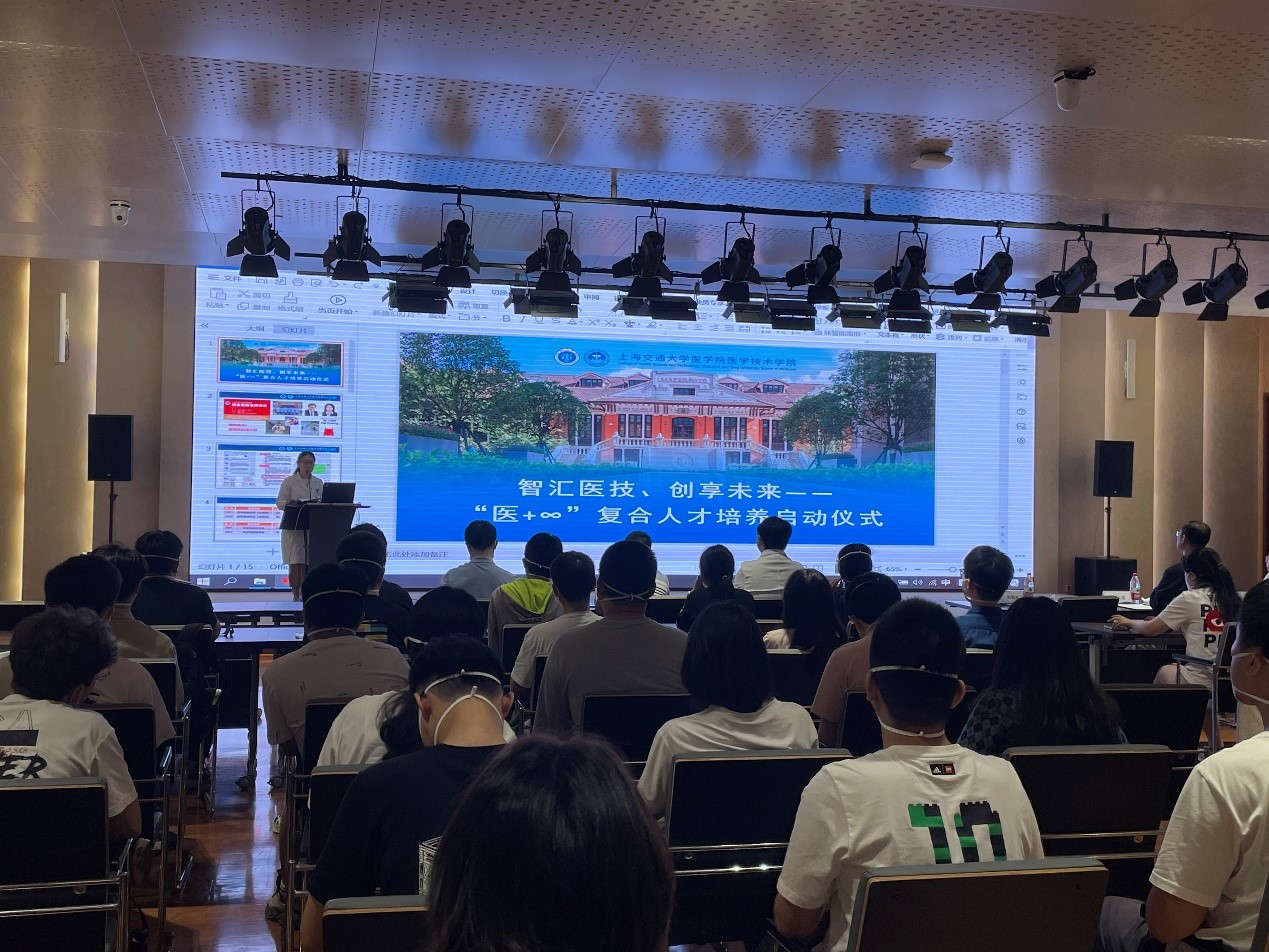
At the beginning of the activity, Vice President Xu Qinyi delivered a speech on behalf of the College. She first fully affirmed the active participation of the tutors and students in this activity, and then introduced the growth and harvest of the six tutors on the way to study and research, which aroused the students' infinite yearning for improving their professional skills and cultivating their scientific research thinking ability. Then, she explained the purpose of the college students' innovation training plan from the perspective of students, and said that the college would work hard to build a platform to attract more excellent tutor teams to join the "college students' innovation training plan", so as to help students learn and grow in the process of "being a person, doing things and learning". Finally, Vice President Xu Qinyi expects all students to find their own career direction and social mission and make contributions to the development of the medical cause.
Immediately, Xu Dakang, Zheng Jie, Xu Yu, Yu Shanhe, Tan Yun and Zhang Chencheng introduced their research experiences and research directions respectively.
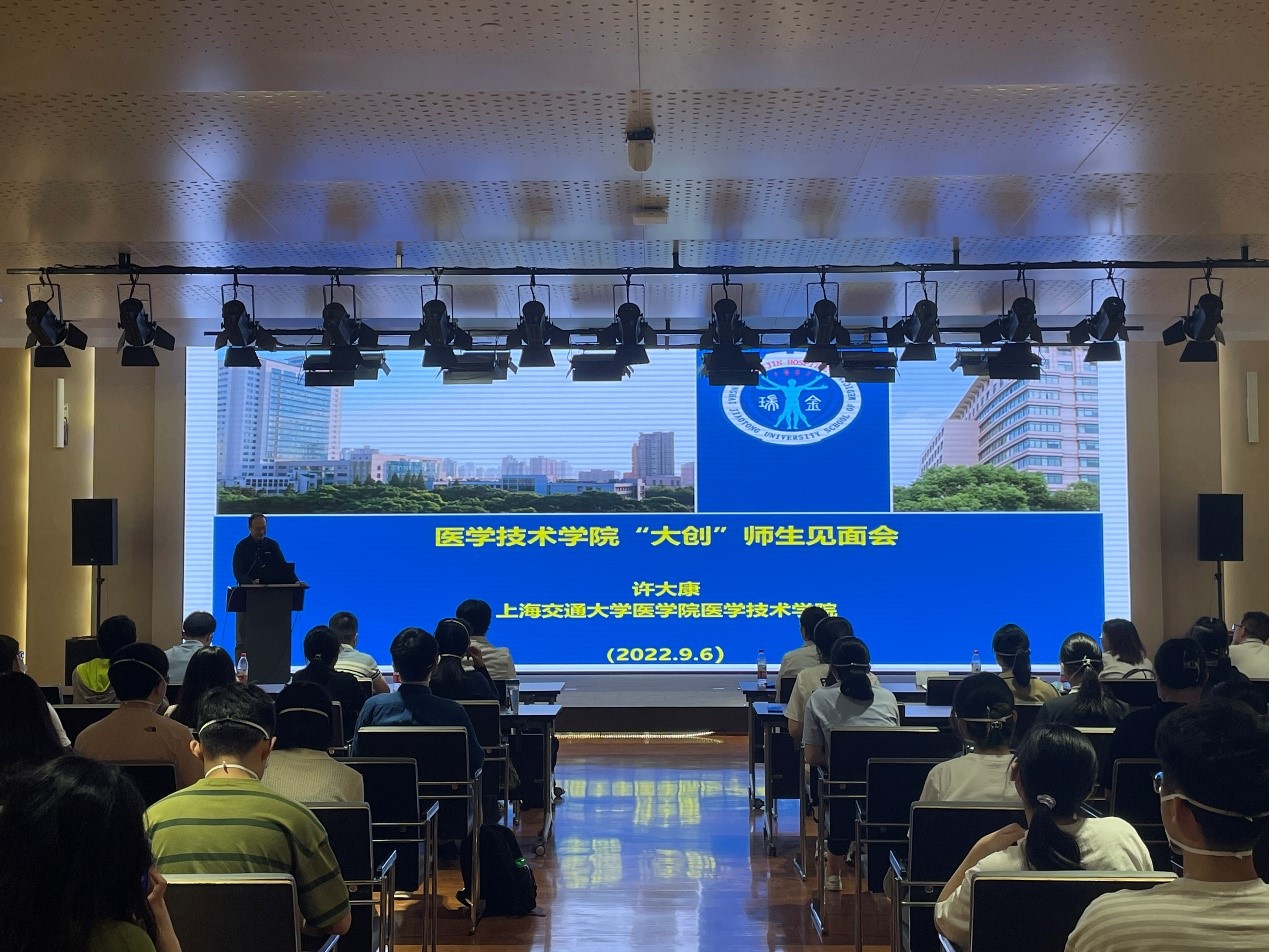
Professor Xu Dakang, a researcher and doctoral supervisor of the College of Health Science and Technology, combined with his years of experience in guiding the "Innovation Training Program for College Students", showed us his teaching thinking and achievements. After returning to work in his alma mater in 2018, he guided students through "Sunday Literature Reading Association", "Medical Experimental Class" and other models, helped students to publish a total of 5 SCI treatises as the first author or co first author, and won the National University Students' Life Science (Innovation and Entrepreneurship) Special Prize. Finally, Mr. Xu also shared the topic direction of the 17th issue - "Clinical, Basic and Transformational Applied Research on Cancer", and suggested that students should communicate with their tutors more and use the knowledge in books flexibly.
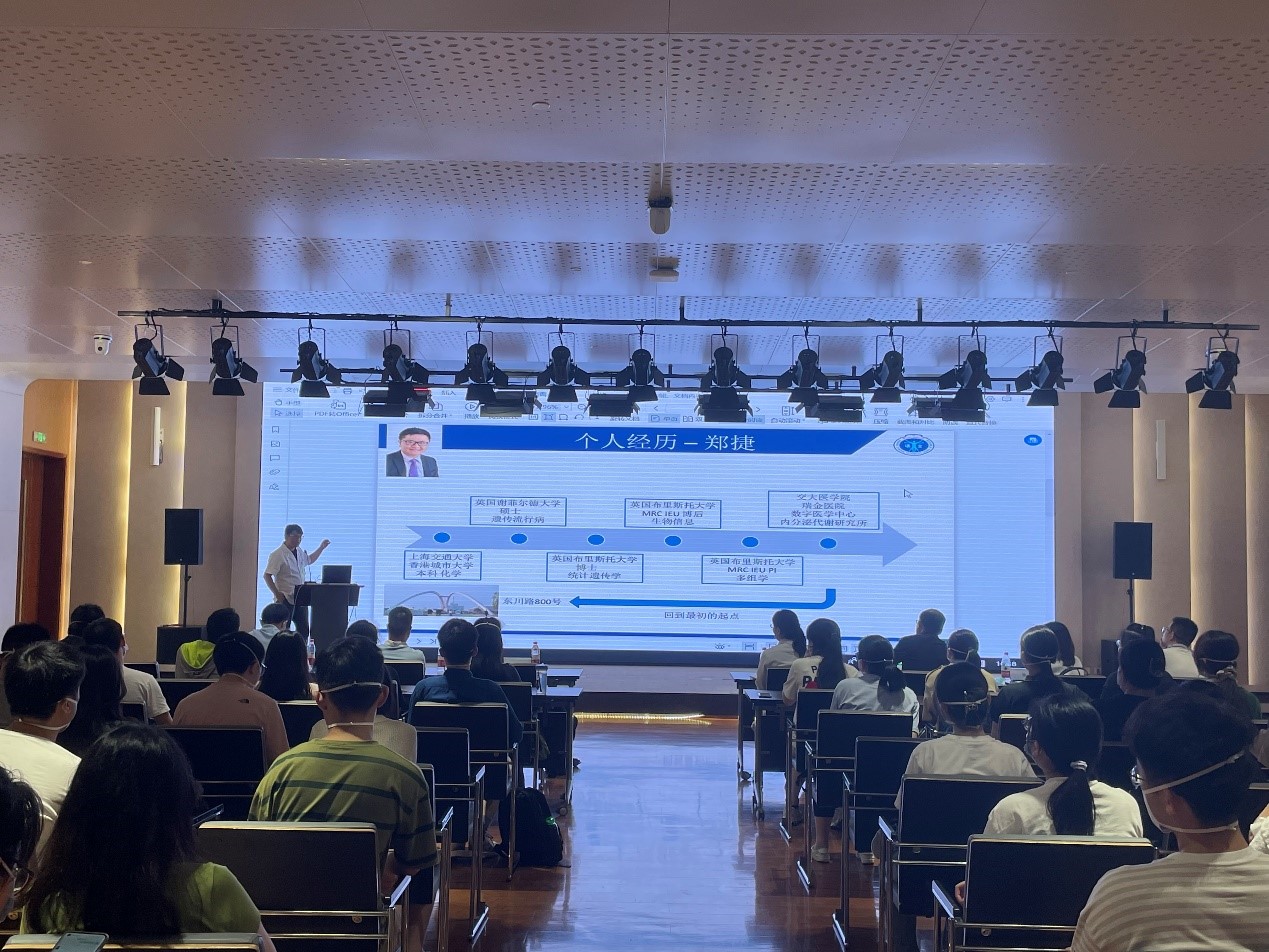
Zheng Jie, the research team leader, doctoral supervisor and researcher of Ruijin Hospital, was an independent PI of the Comprehensive Epidemiology Research Center of the University of Bristol in the United Kingdom, and established international leading genetic analysis platforms such as MR base and LD Hub. After returning to China, Zheng Jie strongly supported students' scientific research and career development, and carefully guided students. The student's recent work/joint paper was published in well-known journals such as Cell Genomics and EBio Medicine. At the same time, he extended invitations to interested students around the research field of "health big data analysis, big data analysis of genetic multiomics".
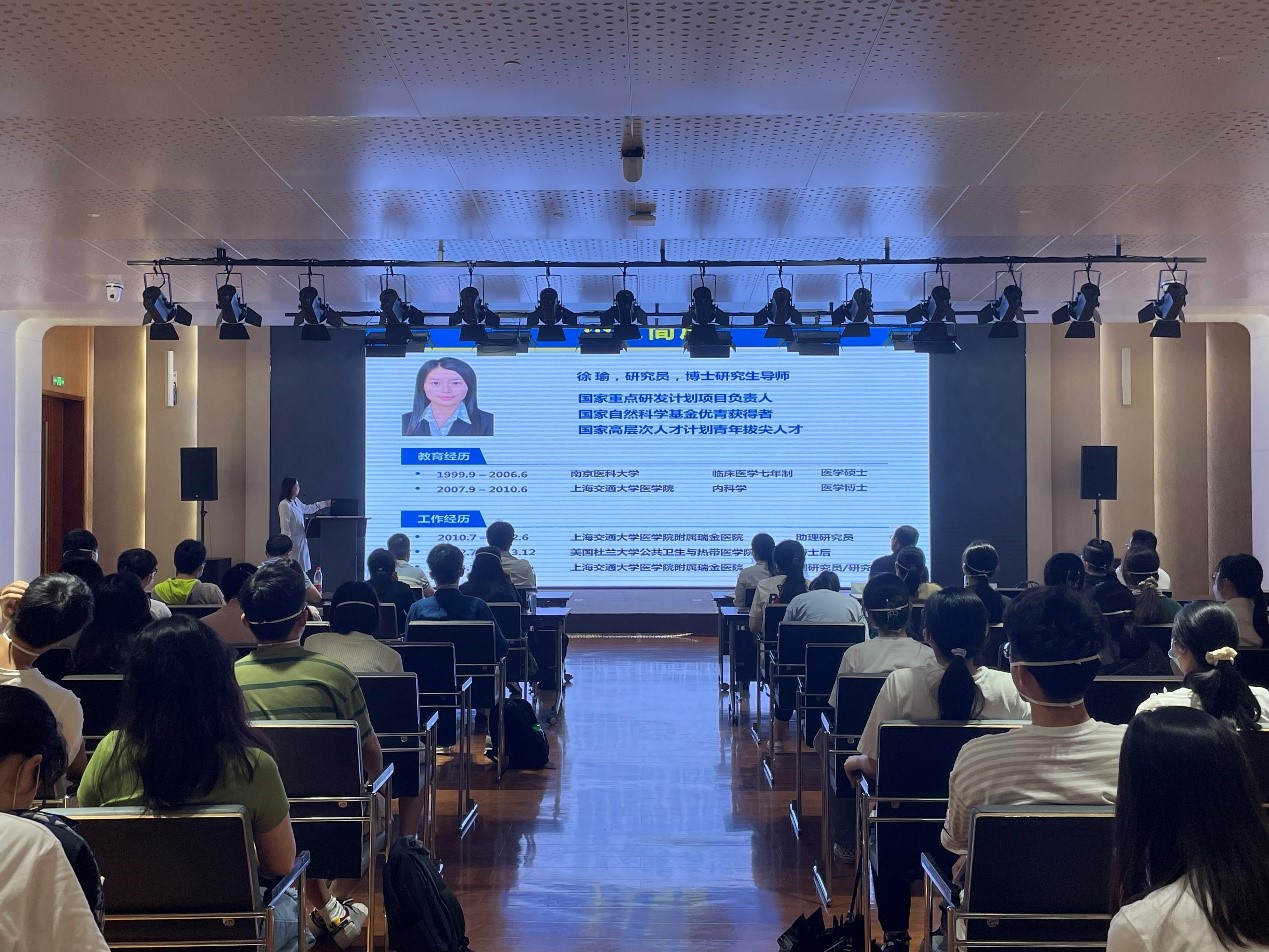
Xu Yu, researcher and doctoral supervisor of affiliated Ruijin Hospital, told the students about her experiences and achievements in "Research on early prevention and control of diabetes and cardiovascular complications". In recent years, she has used the randomized controlled intervention research method to explore the multifactorial management strategy of cardiovascular complications in diabetes and provide effective strategies for the multifactorial management of cardiovascular complications in diabetes. By summing up the valuable experience in the research, teacher Xu Yu pointed out that the application direction of his "Innovation Training Plan for College Students" was closely related to the crowd research of public health, and explained the core risk factors of disease based on cohort study.
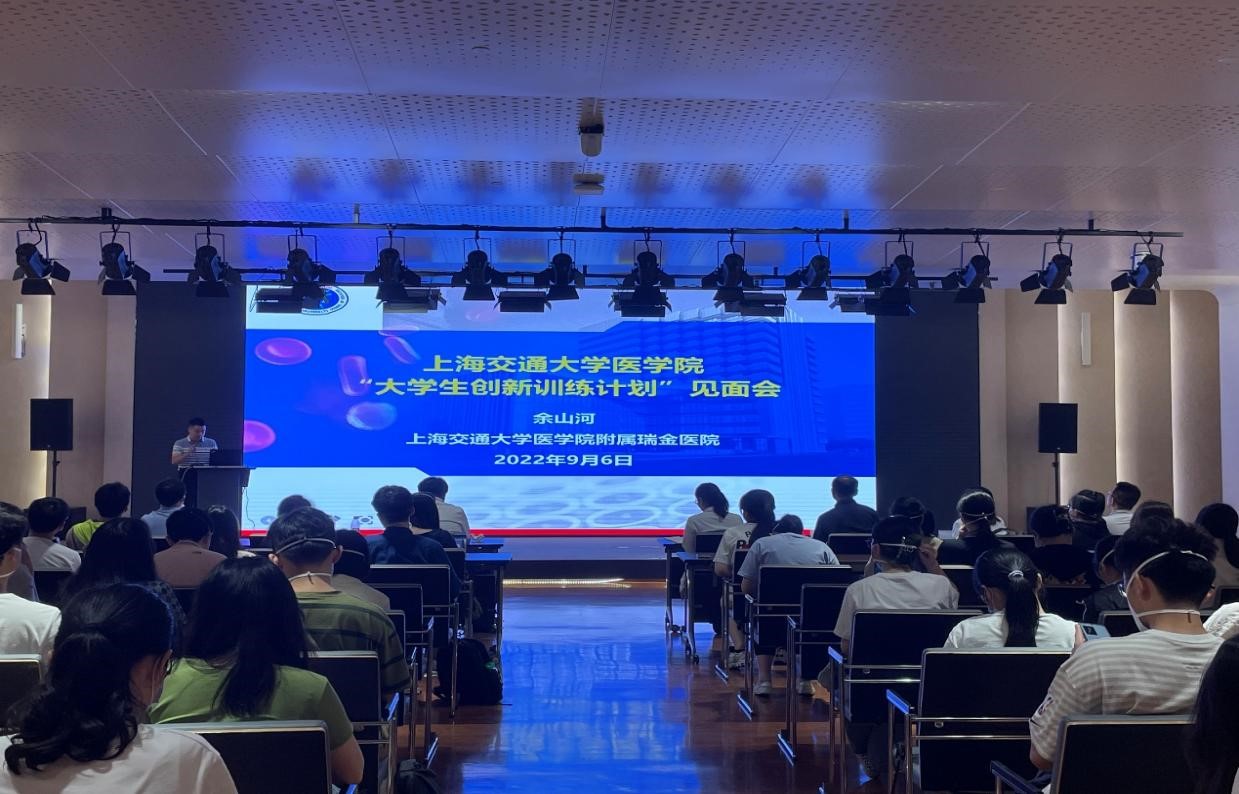
Yu Shanhe, associate researcher of the National Transformation Medical Center of Ruijin Hospital, based on his own research direction of "the development and disease of the hematopoietic system (myeloid system)", combined with the characteristics of various specialties of medical technology, introduced to students the cutting-edge technologies such as mass spectrometry flow (CyTOF), and showed some of the research results of this technology. We also invited interested students to join us under the theme of "Research on diseases related to abnormal immune system by single cell multi group technology with CyTOF as the core".
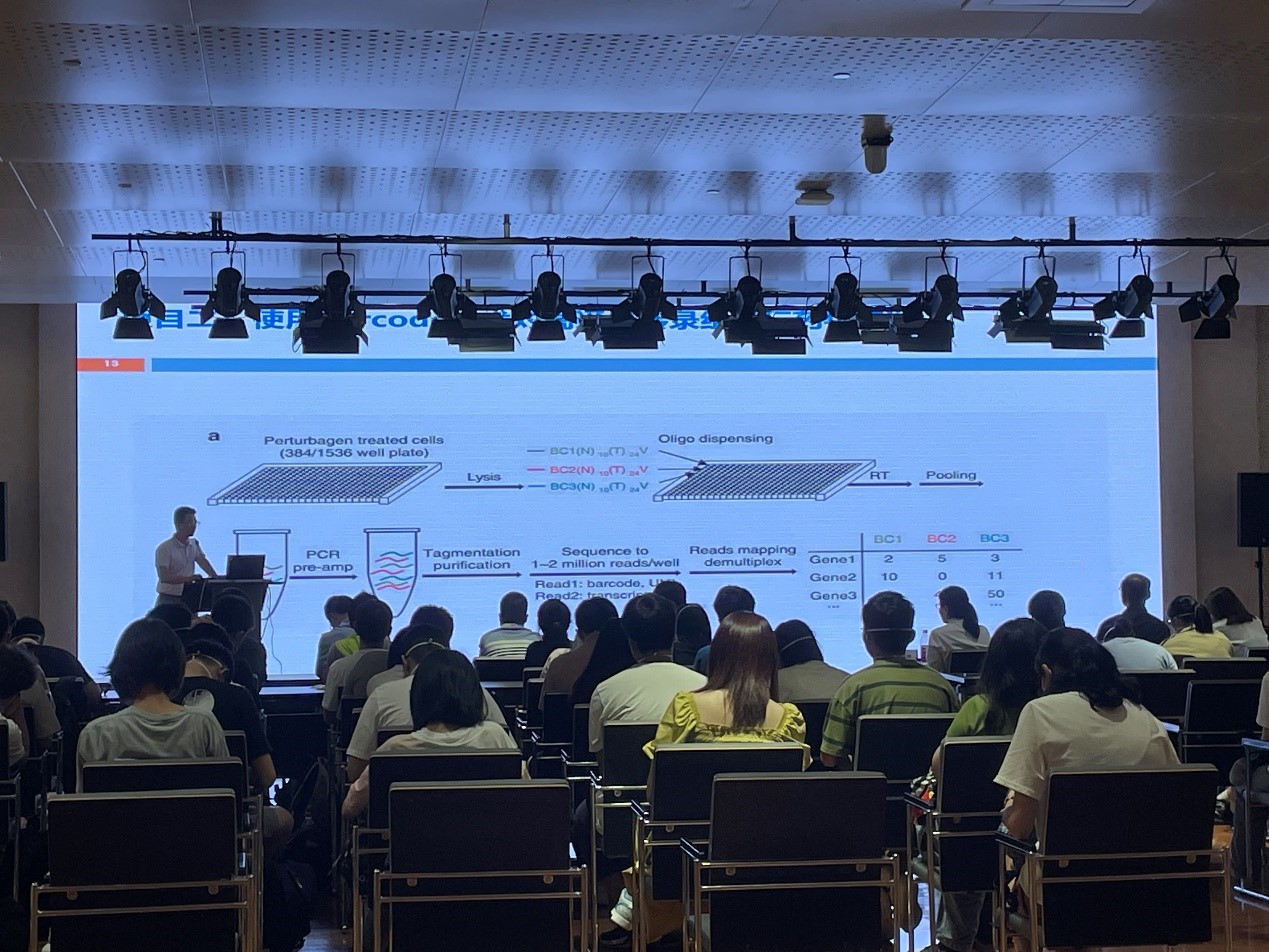
Tan Yun, associate researcher of affiliated Ruijin Hospital and State Key Laboratory of medical genomics, introduced the relevant research results in acute promyelocytic leukemia and COVID-19 in the past two years to the students, and revealed the application of high-throughput sequencing technology in diseases related to hematopoietic system abnormalities, The three major projects of the "Innovative Training Plan for College Students" to be declared this time - "Research on the pathogenesis and treatment related immune reactivation mechanism of acute promyelocytic leukemia", "Drug screening of high-throughput transcriptome using barcode technology", and "Research on the function and regulation mechanism of leukemia related hematopoietic transcription factors" are introduced. At the same time, Mr. Tan also encouraged students to combine scientific research with learning, research in learning, and learn in scientific research.
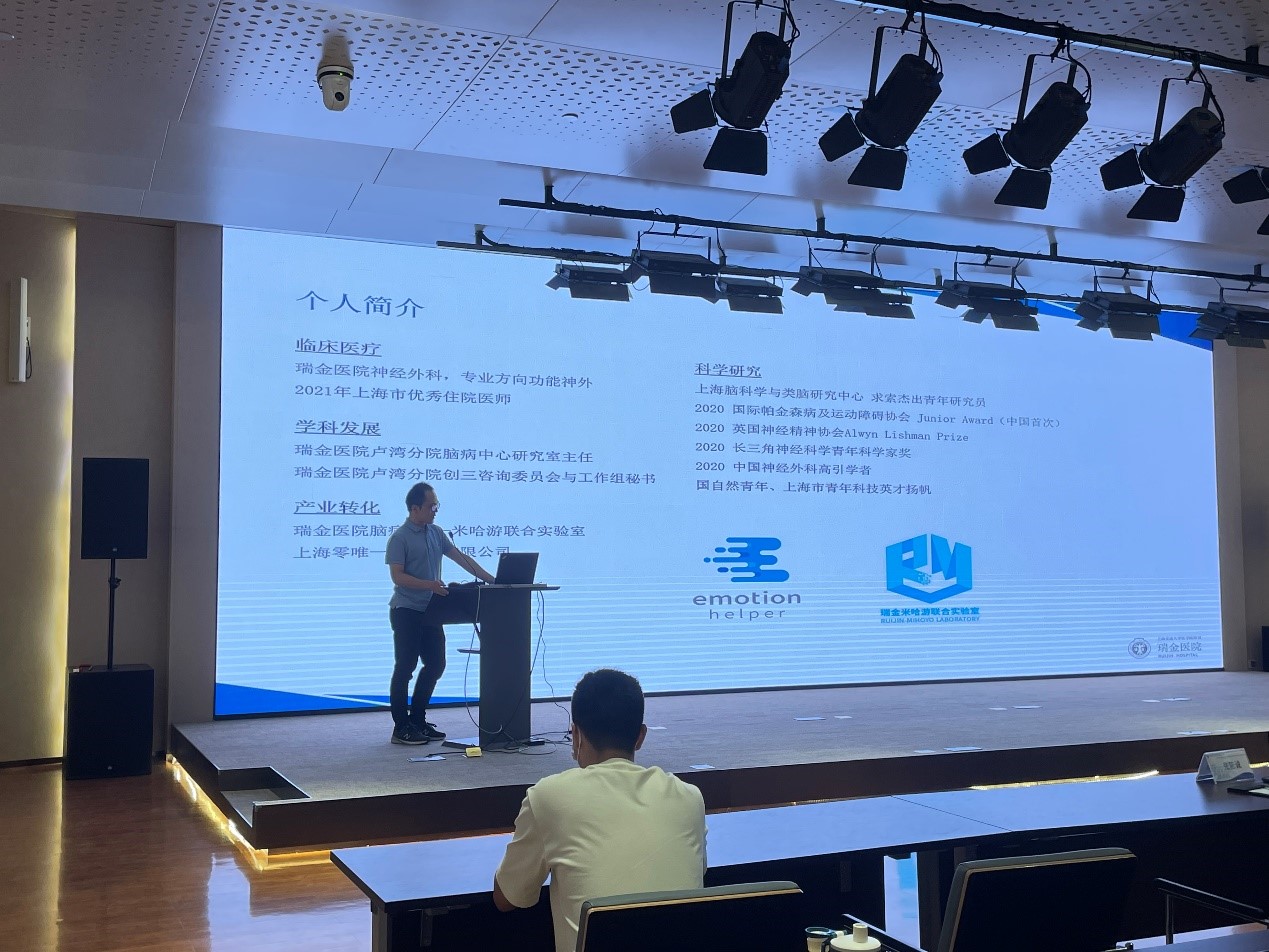
Teacher Zhang Chencheng, director of the Research Office of Brain Disease Center of Luwan Branch of Ruijin Hospital and researcher of Shanghai Brain Science and Brain Like Research Center, introduced the research direction of "brain computer interface and digital medicine". He proposed that invasive brain computer interface and non-invasive brain computer interface have two major roles in the diagnosis and treatment of Parkinson's disease and epilepsy, as well as in the optimization of depression evaluation criteria. Mr. Zhang welcomed all interested students to join his "Undergraduate Innovation Training Plan" to study "Innovative Diagnosis and Treatment Technology and Clinical Research of Brain Computer Interface for Parkinson's Disease", and pointed out that the most important purpose of scientific research is not to publish articles, but to make scientific research achievements enable fewer people to get sick and improve the quality of life of patients. He hoped that all students could shoulder the mission of medical workers by encouraging them to "bend down to save patients and help others".
Finally, the majority of teachers and students interacted closely, and the scene atmosphere was active. The students were deeply attracted and shocked by the introductions of their tutors. They crowded around the tutors and actively expressed their interest and enthusiasm.
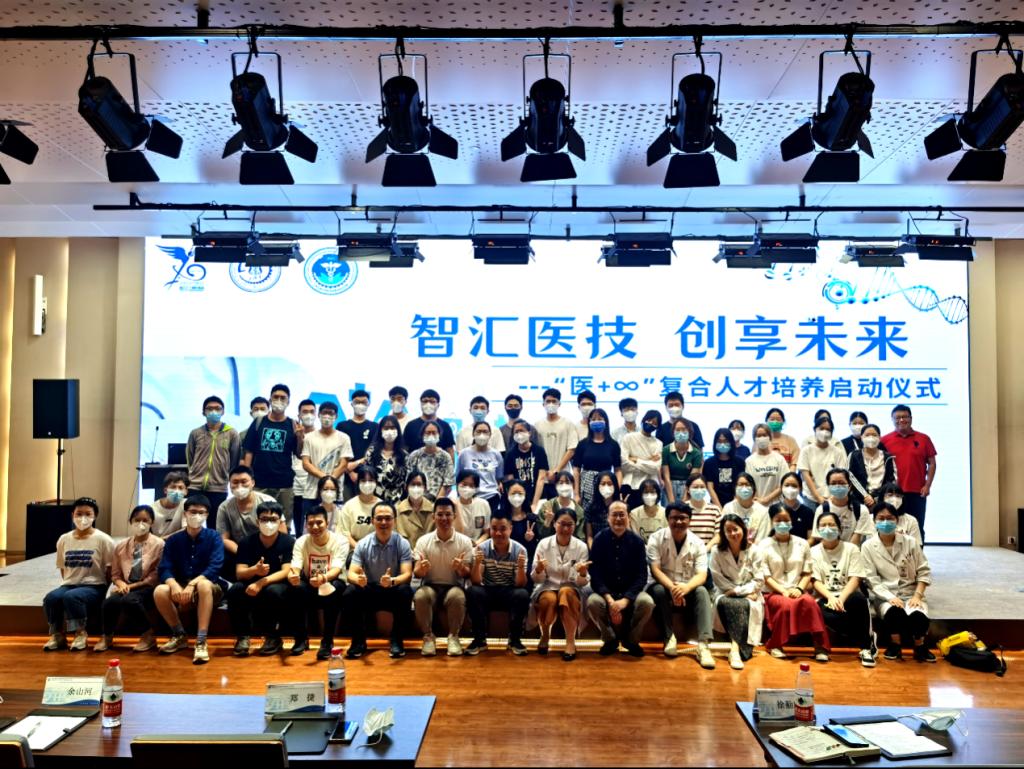
The smooth holding of the launching ceremony also echoes the theme of "youth condenses the Chinese dream, and role models deliver positive energy". Through the launching ceremony of "medical+∞" composite talent training, a group of young students saw the tireless efforts of their predecessors in scientific research, and felt that the journey to the world's leading edge of science and technology is long. The students all said that only by constantly learning new skills, forging new thinking, and putting into practice with an unstoppable drive can we innovate, make breakthroughs and create the future.




